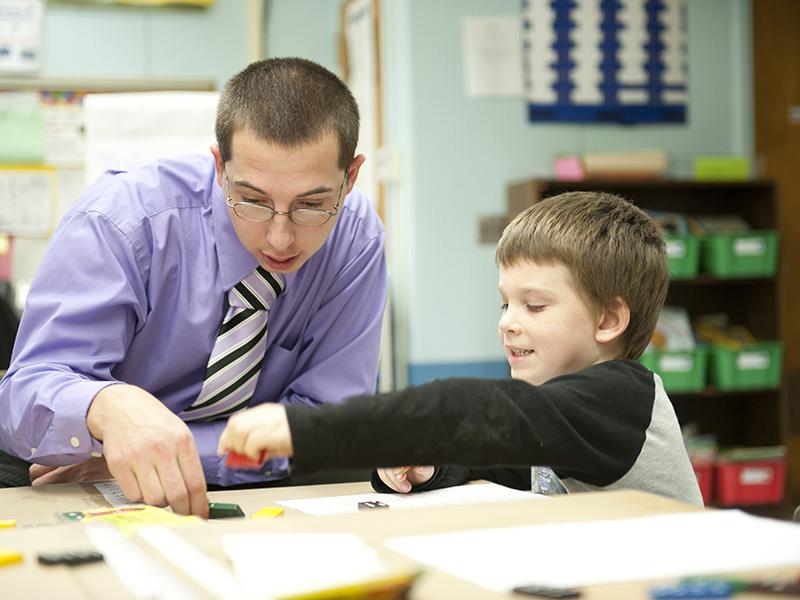SUNY Oswego’s School of Education has begun accepting applications for a new master’s degree program to fill a demonstrated workforce need—regionally, across the state and nationally—for teachers of special education in grades 7 to 12.
The new master of science degree in education will lead to initial state certification for generalist special-education teachers—those who can co-teach in a variety of subject areas—in middle and high schools.
“People can apply right now for this fall,” said Roberta Schnorr, professor of curriculum and instruction, who led a team of faculty members advocating for the new degree program. “We are proactively recruiting candidates right now, and we have a list of those interested.”
Schnorr said that for years there has been a shortage of teachers in adolescence education with the skills to work with students with special education needs. SUNY Oswego was ideally placed to help fill the gap, given its highly respected graduate program for special education certification at the childhood level, grades 1 to 6.
“We are really excited about this,” she said. “We’re very proud of the team we have in place.”
Besides Schnorr, core faculty for the new degree program are Amanda Fenlon, Carol Willard and Linda Stummer, all in the curriculum and instruction department.
Students can enroll in the program full or part time. The part-time option opens the program to current teachers in content areas such as English, math, social studies, science, modern languages or teaching English to speakers of other languages (TESOL). All students in the program will need to have a bachelor’s degree and initial certification in adolescence education or TESOL.
Those emerging from the new program will need to demonstrate multi-subject competency to be prepared to assist learners with a wide array of challenges in any or all subject areas. The majority of students requiring special-education assistance have mild learning disabilities, Schnorr said, while others deal with Down syndrome, autism and other emotional, social and physical disabilities. For many students with disabilities, strengthening literacy is a key focus, she said.
Assistive technology
As they navigate intensive coursework, special education teachers-in-training will have access to iPads loaded with literacy apps and other specialized software for assistive learning, as well as all the other resources of SUNY Oswego and its NCATE-accredited School of Education.
“Under Dr. Fenlon’s leadership, we are growing our capacity to help teachers learn to use technological tools to remove barriers for learners with disabilities,” Schnorr said.
Each degree candidate will gain school-based experience through part-time field experiences and an internship. Liverpool and West Genesee central school districts already have expressed interest in developing partnerships with SUNY Oswego’s new program.
Schnorr said that even if a teacher’s long-term goal is to focus in a general education role, the new master’s degree could provide quicker entree to the adolescence education workforce and help them to integrate additional strategies and tools to support diverse learners across the general education curricula.
For more information, visit oswego.edu/graduate, call the college’s Division of Graduate Studies at 315-312-3152 or email Amanda Fenlon at amanda.fenlon@oswego.edu.




